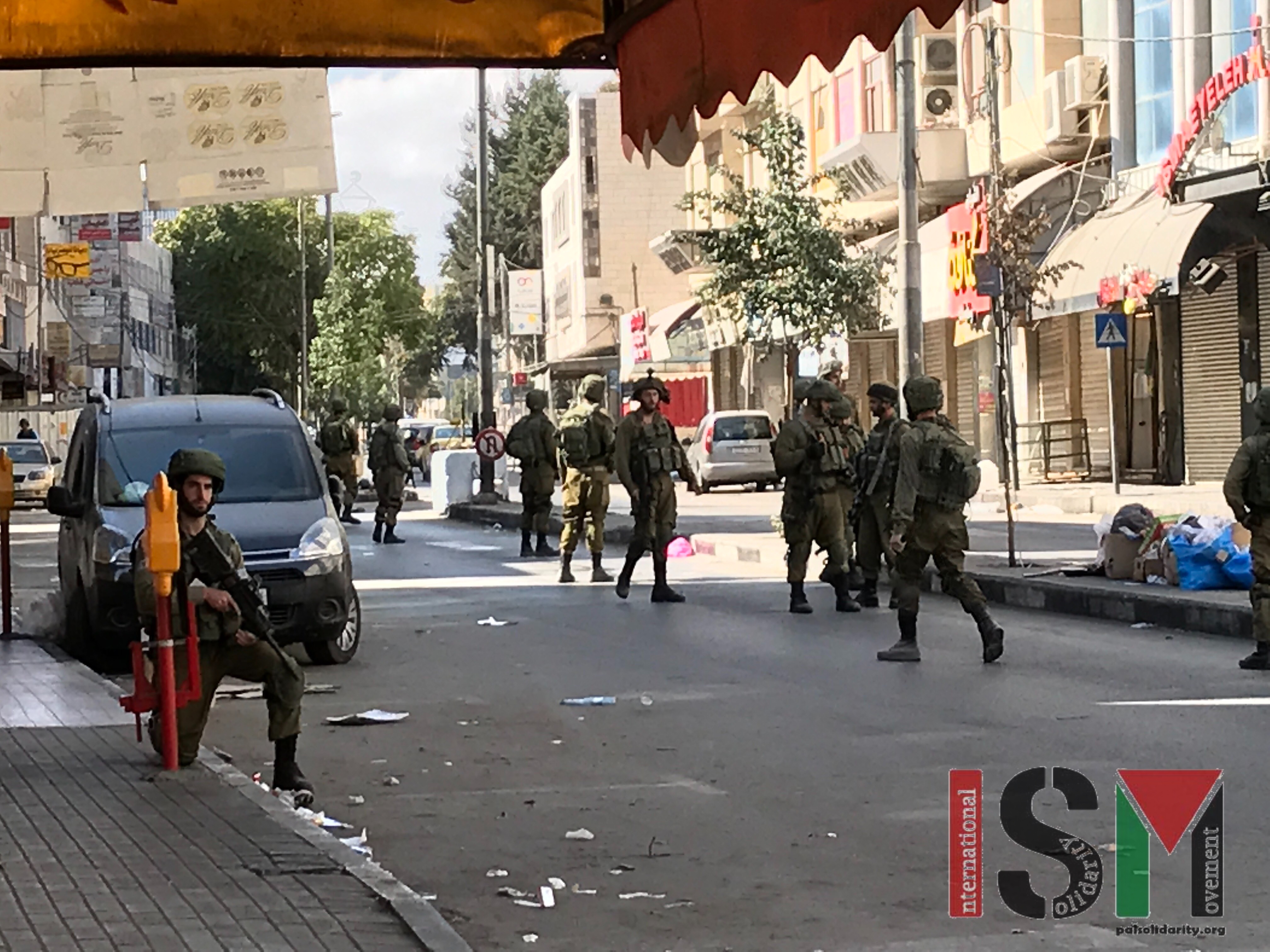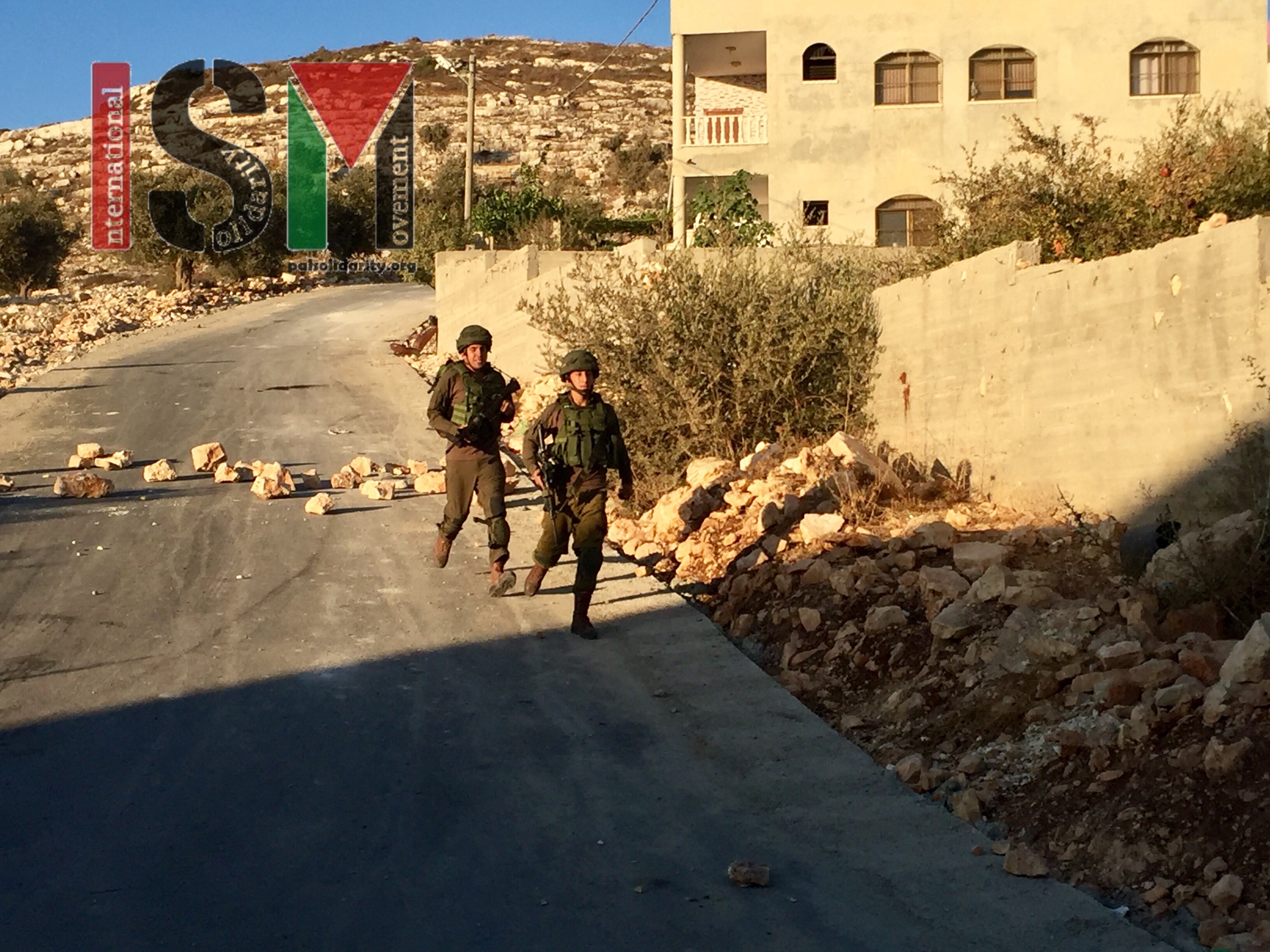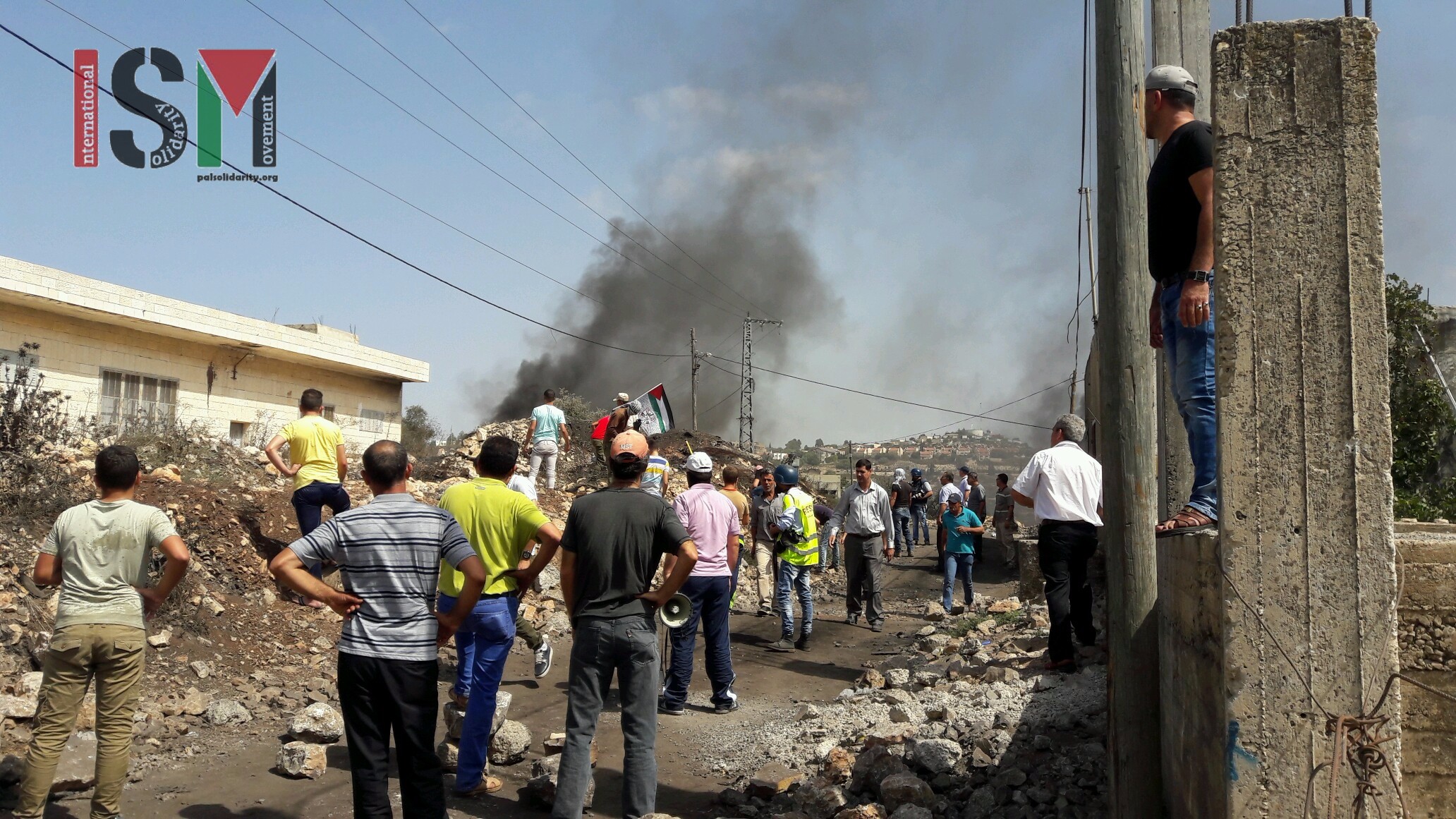Category: Press Releases
-
Israeli forces shoot three people and detain one in occupied Hebron
29th September 2017 | International Solidarity Movement, al-Khalil team | Hebron, occupied Palestine On Friday afternoon, the 29th of September, protests erupted in Al-Khalil near Bab al-Zawiya at approximately 2:00 PM. The military countered the protests with sound bombs and advanced into H1, shooting rubber-coated steel bullets, out of which at least three hit protesters, in…
-
Israeli Soldiers Invade Private Residences to Suppress Kafr Qaddum Protest
30th September 2017 | International Solidarity Movement, Nablus team | Kafr Qaddum, occupied Palestine Activists continued to protest in Kafr Qaddum today, despite heightened repression from the Israeli Army. Before the protest began, an Israeli Armed Personnel Carrier (APC) entered the village in a move to intimidate the residents before returning to the illegal settlement…
-
Live ammunition fired at protesters in Kafr Qaddum
22nd September 2017 | International Solidarity Movement, Nablus team | Kafr Qaddum, occupied Palestine During today’s march in Kafr Qaddum, three protesters were injured by rubber coated steel bullets fired by the Israeli armed forces. When it looked as if the soldiers had retreated, they surprised the demonstrators by re-entering the village and fired several…



